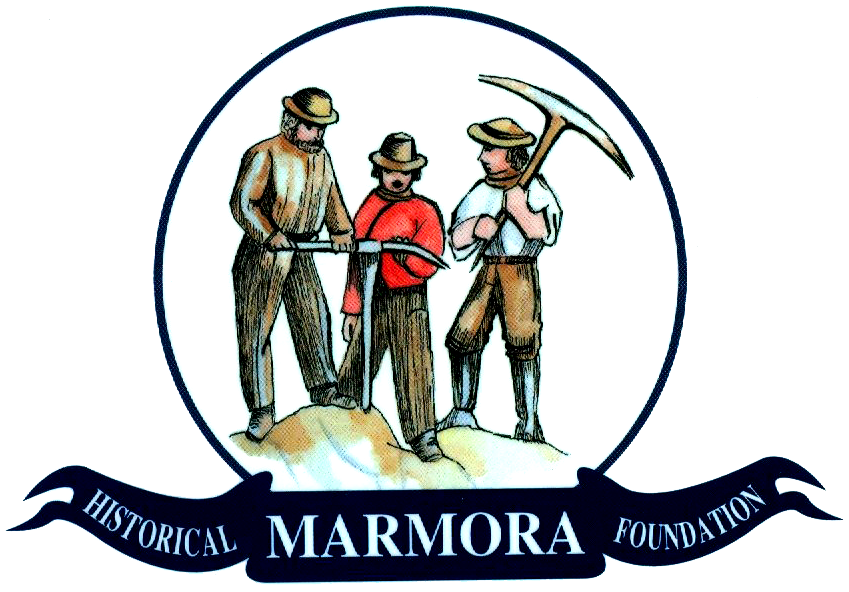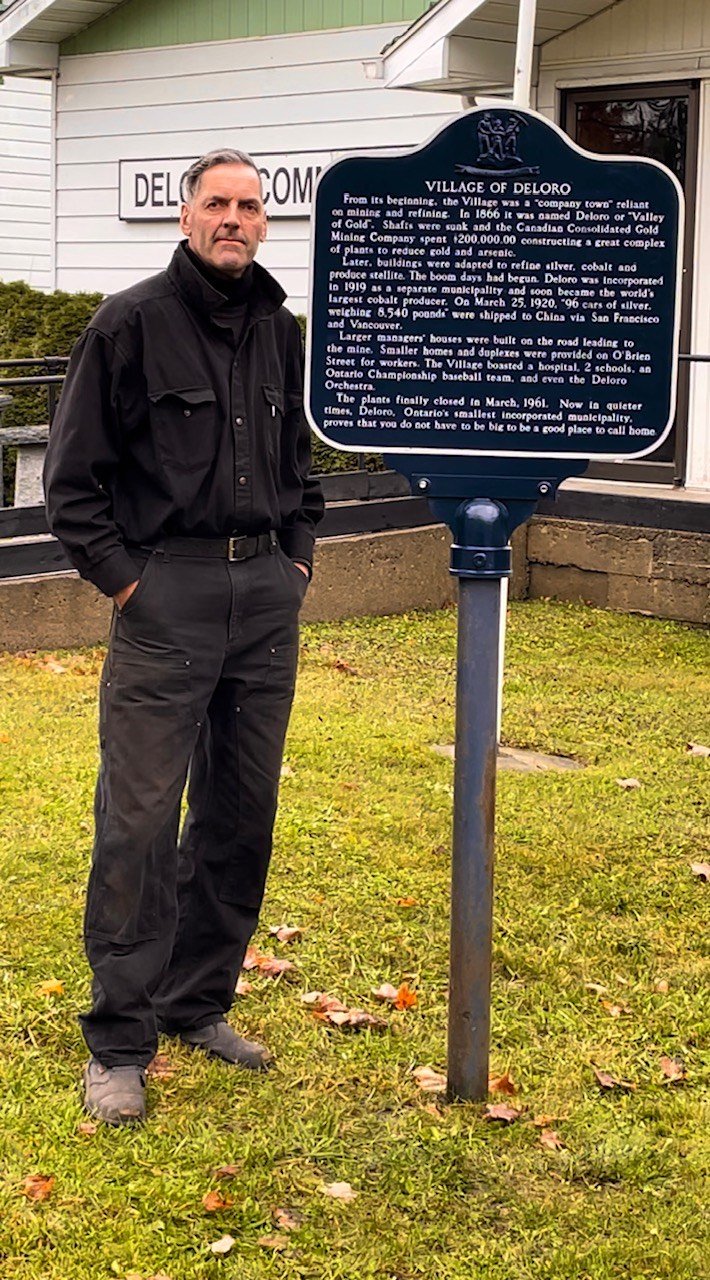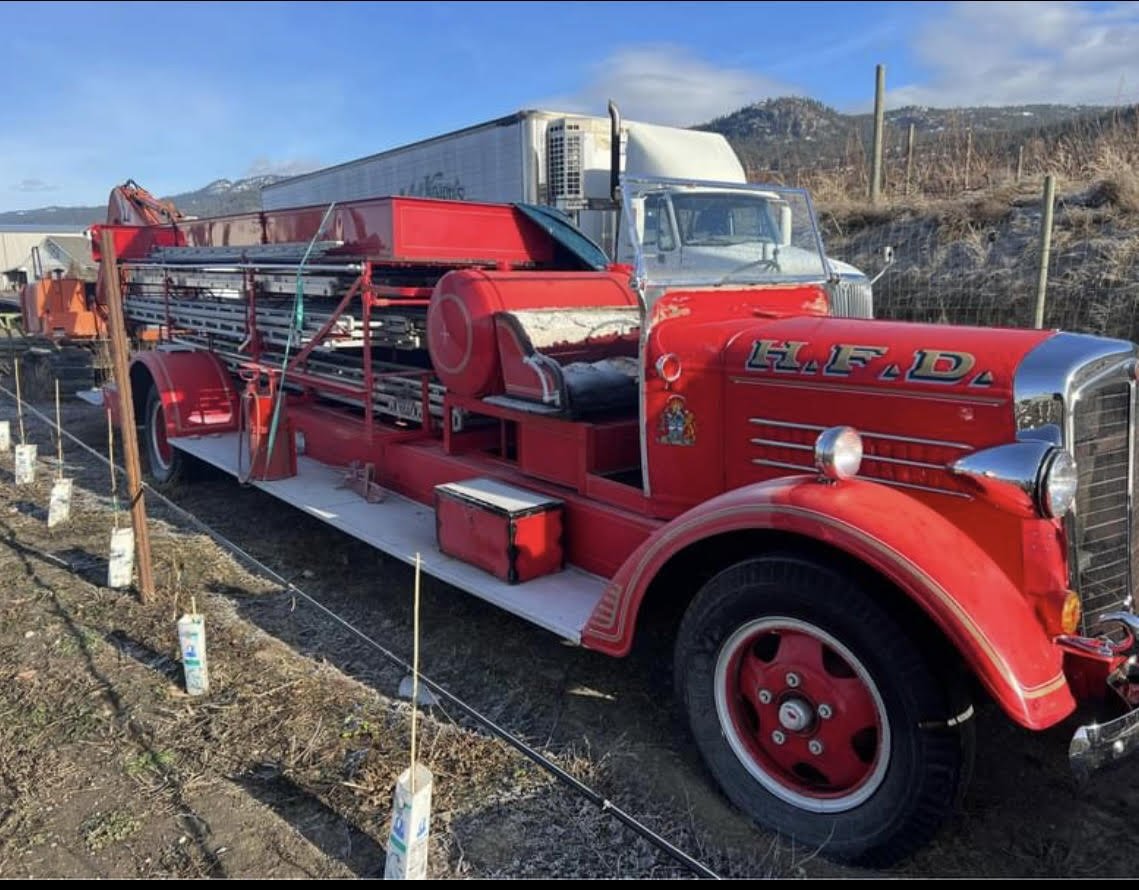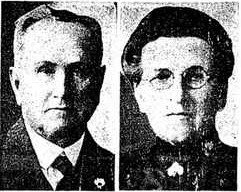1914 The Great Patriotic Rally "For Love and Honour"
Soldiers at Town Hall, 1914
Despite its happy appearance, Marmora and indeed the whole country was shrouded with a gloomy prospect. It was never a risk that Canada herself would be invaded, but England, the motherland, was in danger and she was calling on the colonies for help. And help they would.
At first the politicians promised that this was to be a short march to victory. The "Canadian Expeditionary Force" would be made up entirely of volunteers. Patriotic Societies sprang up across the country, to recruit the volunteers. Women started to wear buttons saying "Knit or Fight". Boys quickly chose.
For most of our soldiers, the war began at the Town Hall. The first Patriotic Rally was held there on November 11, 1914. That fine building was brand new and just the place for a Great Patriotic Rally with music, excitement and heroes already in uniform. Warden Hubbell was chairman of the splendid meeting. The large crowd was stirred by the rich voice of Mr. Frank S. Pearce singing "It's a Long Way to Tipperary", followed by "La Marseillaise" by Mrs. Thompson of Deloro.
The prettiest girls in town marched in dressed in what their parents supposed to be the national costumes of the European countries that need saving. More than one young lady was pulled up the aisle on a dog cart strewn with banners. The enlistment drive had begun. From above in the gallery, the Deloro Orchestra and a choir of fifty voices provided rousing music. During one of the choruses, "Misses Beryl Hubbell, Olive Deacon and Cora McCracken marched onto the stage dressed and carrying flags to represent France, Belgium and Serbia."
Before they knew it, excited teens had cried yes to their watching cheering townspeople, and promised to enlist as they were celebrated by the crowd.
The Excitement was infectious. Fifteen volunteers were enrolled and they agreed to leave Marmora on the very next morning. Each one was immediately presented with a five dollar bill, and a promise of a wrist watch to be sent shortly. Of the fifteen, only George Johns was married and he was presented with a life insurance policy with a payout of $1,000.00. The Marmora Orange Lodge presented twelve of the recruits with "a neat pocket New Testament, printed on India paper and bound in khaki coloured leather."
The next morning off they went to Kingston for training. They were soon on the way to a war they could neve have imagined . But at least they were told the German Kaiser would be ‘quickly whipped and they would be back by Christmas’
By the end of that war, the village, with a population of 900 would have sent 114 soldiers to the trenches of Europe. Twenty-eight made the ultimate sacrifice or died of injuries upon arriving home. One gave his sight, and there were others with amputations. Five had won medals for valour. Four years later those who survived came back home to another faulty assumption—that they had won the ‘War to End all War’.
And just as the war had started for our heroes at the Townhall, more than four years later, it would end there. On Dec 3, 1919, a quickly established ‘Soldiers Welcome League’ organized a supper and dance in their honour. “Those who can were invited to bring a lady friend. “ The dance, it was promised would go from 8:30 to 2:00 A.M. and was to feature ‘Sprague’s Orchestra’ from Belleville. But cars were still in their infancy, and Belleville was a long way away. Their car soon broke down and by the time they could find another and hobble up to Marmora, the Orchestra was destined to arrive, ‘very, very late’.
Yet the event went on. Presentations were made and numerous soldiers were brought to the stage to be cheered home. But none more touching than that for Pte. Michael McFarlane. In his eagerness he had probably been the first from Marmora to enlist. He soon arrived at the battlefields of the Western Front and in one of the great battles, his great misfortune was to lose the sight of both eyes. But that had not defeated him. The whole gathering marvelled at his ‘cheery optimism and indomitable courage’ as he ‘entranced his listeners with tales of his experiences abroad’. He was presented ‘a fine seal leather club bag.’
‘Few eyes were dry’.
Later, the Premier, William Hearst, personally attended a "monster picnic" at the fairgrounds to thank the community. Between four and five thousand attended.
1915
BROTHERS: Michael McFarlane, injured alexander mcFarlane was killed in action and never found, joseph and james returned home.


































